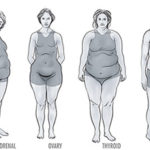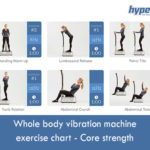Healthy diets for weight loss are more than just certain diets. It emphasizes on the origin of your food rather than metrics like caloric count, vitamin percentages, and so on. The shorter the journey from the source of your food to your plate, the better. Your food should be as close to its natural state as possible.
Plant-based diets for weight loss are generally healthy. According to research, diets for weight loss high in fruits and vegetables can help prevent or reduce diseases such as type 2 diabetes, high blood pressure, and heart disease.
Clean eating is not always easy. Too much restriction in your diet can be harmful. Clean eating can be costly. Clean eating can become obsessive, which leads to health problems.
Carbohydrates are simple to overeat, therefore dramatically limiting your carb intake can help you lose weight by lowering your calorie intake. There is scientific evidence that if you increase your fat diet while decreasing carbs, your body will eventually learn to use fat as fuel.
Vegetables, fruit, milk, yogurt, and whole grains are examples of carbohydrates. They contain the vitamins and minerals that we require on a daily basis. Carbohydrates are also required to fuel your workouts if you want to shed body fat by burning a lot of calories.
A ketogenic diet can help with weight loss by lowering overall caloric intake, emphasizing healthy fats, and putting the body into ketosis. It’s also been linked to a lower risk of heart disease and certain malignancies.
A ketogenic diet should always be followed under the supervision of a doctor or trained dietitian. Low carbohydrate intake can cause flu-like symptoms, decreased energy, kidney stress, digestive difficulties, vitamin shortages, dangerously low blood sugar levels, and diminished bone density.
Fat restriction helps you lose weight and improve your health. No food is off-limits. No foods are restricted on this diet.
Even high-fat meals can be eaten in reduced portions if your daily fat intake is within range. Some studies suggest a healthy low-fat diet can help with weight loss, but food quality is crucial and a low-fat diet isn’t always more successful.
Nutritionists and doctors fear low-fat diets for weight loss. Nutritional quality impacts health risks, just like diet benefits. Healthy fats improve nutrition. A, D, E, and K need fat. Fat protects and nourishes cells. Healthy fats reduce LDL and BP.
By restricting fat intake, especially below USDA limits, you may lose these benefits and nutrients. Fat makes dishes filling and tasty. Without fat, you may overeat and exceed your calorie, sugar, or carb targets.
This diet will undoubtedly be beneficial to your health, and if you limit your calorie intake while according to the DASH diet’s guidelines for maintaining a healthy heart, you can both reduce your weight and your blood pressure.
The program proposes cutting salt intake to 2,300 or 1,500 mg per day. Even if you don’t eat processed foods, it’s hard to give up the salt shaker. DASH is difficult to follow for this and other reasons.
A study indicated that people have trouble keeping to the DASH diet and require more than counseling to do so. Researchers have studied the DASH diet’s fat intake, believing that allowing more fat may help people stick to the plan.
Diabetes, psoriasis, osteoarthritis, and obstructive sleep apnea patients can benefit from a VLCD. Obesity can induce symptoms and negative effects in certain disorders, thus losing weight can assist.
A very low-calorie diet is a temporary weight-loss option. It is only intended to be followed for a brief time. Following that, patients must shift to a maintenance plan that includes a healthy diet, exercise, and other lifestyle modifications.
Calorie restriction may boost muscle strength. Muscle mass and function deteriorate with aging. Cutting calories may slow this process.
Eating less can increase your health and well-being, but too little might be harmful. Dieting can have mental effects. Too little glucose might induce mental sluggishness and memory issues. Undereating might cause concentration issues.
Weight loss is a primary advantage, with proponents of the diet saying that 15 pounds can be dropped in the first two weeks, however this is primarily due to reduced water weight. However, weight loss is not the only benefit.
People who follow this diet, much like those who follow the ketogenic diet, undergo episodes of ketosis, the safety of which over the long term is questionable. In the first phases of the diet, you may also encounter symptoms such as nausea and diarrhea.
Your chance of developing heart disease and cancer goes down, and you may experience less joint discomfort due to arthritis if you eat a vegetarian diet that is well-balanced. It is necessary to keep a balanced diet consisting of fruits, vegetables, dairy products, and sources of protein that are vegetarian.
Vegetarians are at a higher risk of iron deficiency anemia since meat is abundant in iron. Fish, rather than beef, can help replenish iron and offer omega-3 fatty acids. Consume plenty of vegetarian protein and iron sources, such as soy, quinoa, almonds, tofu, lentils, and spinach. In addition, your doctor may advise you to take vitamins or supplements.
The diet emphasizes fruits, vegetables, whole grains, lean protein, and low-fat dairy. Diet promotes portion control and regular meals. These healthy food guidelines are recommended for weight loss. Losing 10 pounds can improve blood sugar if you’re overweight and have diabetes.
The diabetic diet advocates eating the same quantity every day. Meal consistency helps regulate blood sugar. Some people struggle to follow a meal plan.
Following a gluten-free diet is not only safe and healthy if you have celiac disease or non-celiac gluten sensitivity; it is also medically necessary.
Physicians and nutritional experts do not advise people to adopt the gluten-free diet in order to lose weight or improve their health. The diet does have limitations for those who must adhere to it due to medical necessity.
Diets for weight loss that include a lot of processed food might lead to overeating and weight gain. These diets contain a lot of calories, sodium, sugar, and fat. 4 A raw food diet promotes the consumption of unprocessed foods, which has been linked to a lower risk of cardiovascular disease, type 2 diabetes, and cognitive decline.
Restrictive diets for weight loss can promote unhealthy eating habits. Raw food diets forego normally healthful foods such as cooked beans, grains, and vegetables. This could result in disturbed eating habits.
A vegan diet may lessen the risk of some heart diseases and malignancies, as well as arthritic pain. However, this is dependent on the vegan foods you choose. Because there are many bad vegan options, it is still vital to follow the CDC’s nutrition guidelines when following this diet.
A vegan diet increases the risk of insufficient protein, vitamins, and minerals, including iron and omega-3 fatty acids present in meat and fish. However, soy, quinoa, and almonds are high in protein, and tofu, lentils, and spinach are high in iron. To avoid deficiencies, you should also consider taking vitamins or supplements.
A diet low in sodium can be beneficial to the health of the heart. This is due to the fact that lowering sodium intake can assist in lowering blood pressure as well as the risk of developing heart disease.
A diet low in salt necessitates advanced planning and preparation, which is another another disadvantage of following such a diet. This can be a time-consuming endeavor, and it may not be feasible for everyone in every situation.
According to specialists at Aberdeen’s Rowett Research Institute, a high-protein, low-carbohydrate diet promotes weight loss and reduces appetite.
Two “high protein” diets were given to healthy, obese males. Both diets had 30% protein, but carbohydrate and fat amounts varied. In the first diet, named “low carbohydrate,” carbohydrate content was 4%, with the rest coming from fat. In the “moderate carbohydrate” diet, carbohydrate content was 35%, with the rest fat.
Each subject was weighed daily for four weeks on each diet. Subjects could eat as much as they wished as long as their carbohydrate, lipid, and protein intake remained constant. Daily hunger and appetite were enquired about.
Unsurprisingly, individuals on the low-carb diet went into ketosis. They ate the least. Given their decreased hunger and desires, individuals ate less and lost weight.
Modern Atkins no longer emphasizes ketosis for weight loss, yet it appears to be useful for certain people. Without ketosis, the contemporary Atkins Nutritional ApproachTM remains successful at controlling weight and promoting health.
Even under the “moderate carbohydrate” diet, carbs accounted for 35% of calories, protein 30%, and fat the rest. In lifetime maintenance, eat enough protein, excellent fat, high-fiber veggies, low-glycemic fruit, and whole grains.
Sources:
https://integrisok.com/resources/on-your-health/2021/january/pros-and-cons-of-different-diet-lifestyles
https://www.prevention.com/weight-loss/diets/g29462611/best-diets-weight-loss/
https://www.verywellfit.com/low-fat-diet-pros-cons-and-what-you-can-eat-5179228#toc-cons-of-a-low-fat-diet
https://www.ainameals.com/pros-and-cons-of-a-low-sodium-diet-what-you-need-to-know/#:~:text=As%20mentioned%20above%2C%20a%20low,the%20risk%20of%20heart%20disease.&text=Another%20downside%20of%20a%20low,not%20be%20realistic%20for%20everyone.

Updated on: 08.09.2021 The lymphatic system is involved not only...

Stress can make you gain weight – we’ve heard this...

Various theories exist to answer this question. As you will...

Our series of whole body vibration machine exercise articles continues...

Both rebounding and jumping on a trampoline are excellent ways...